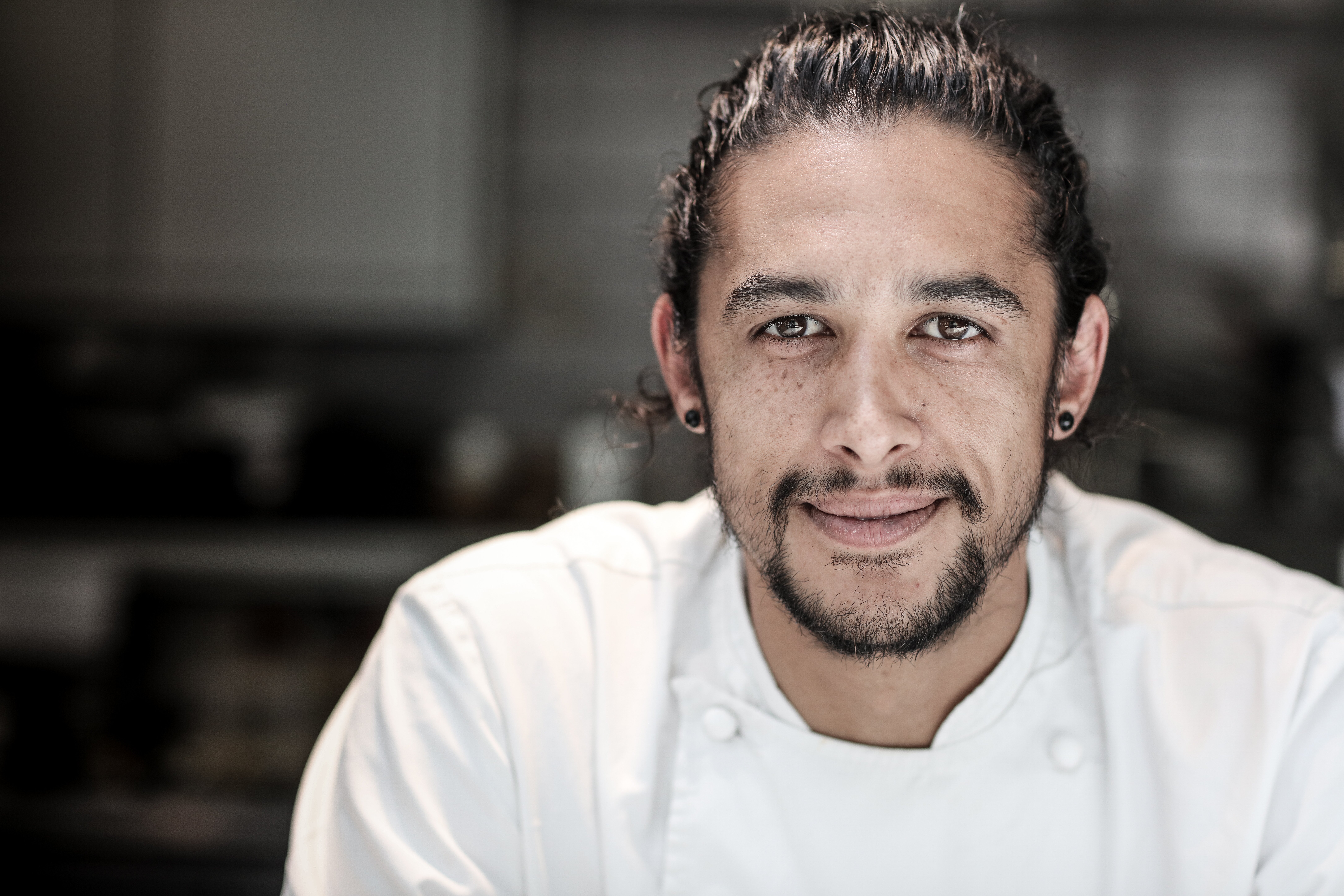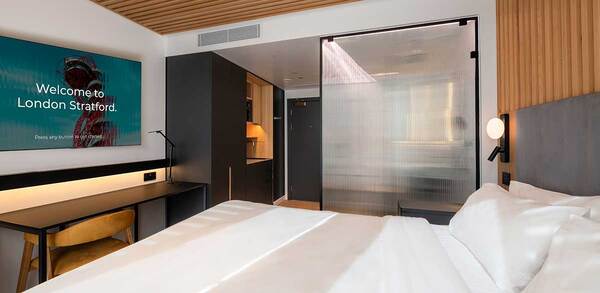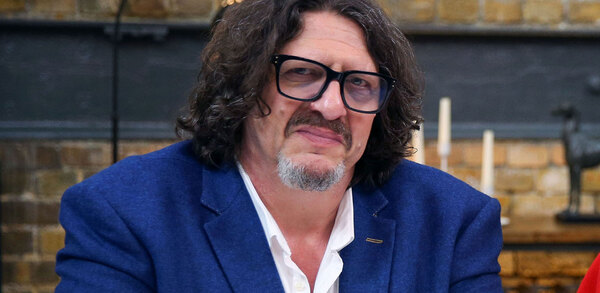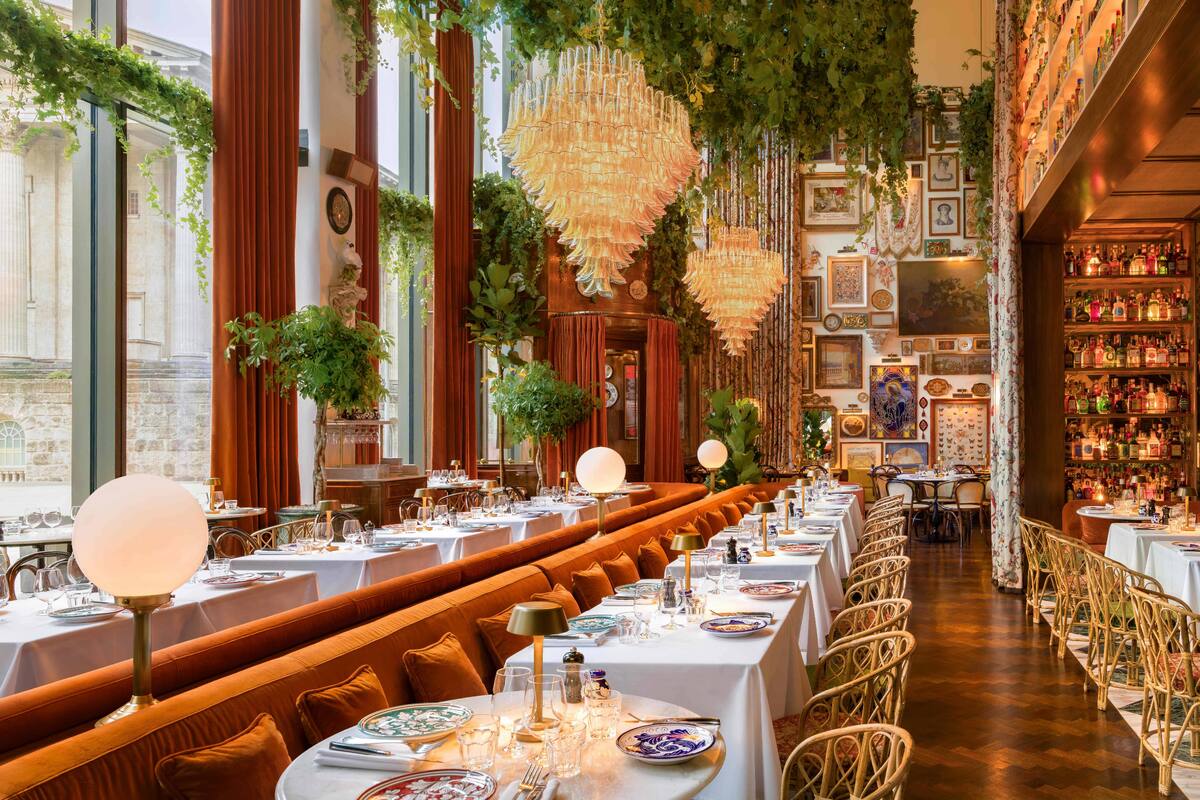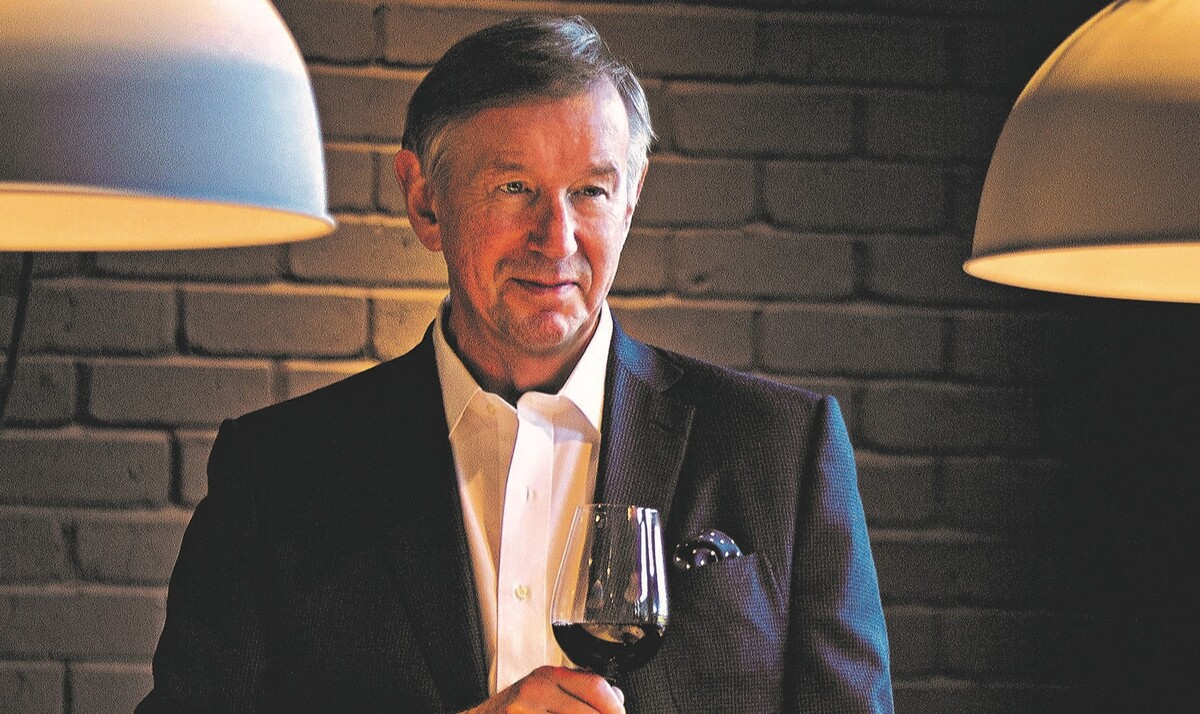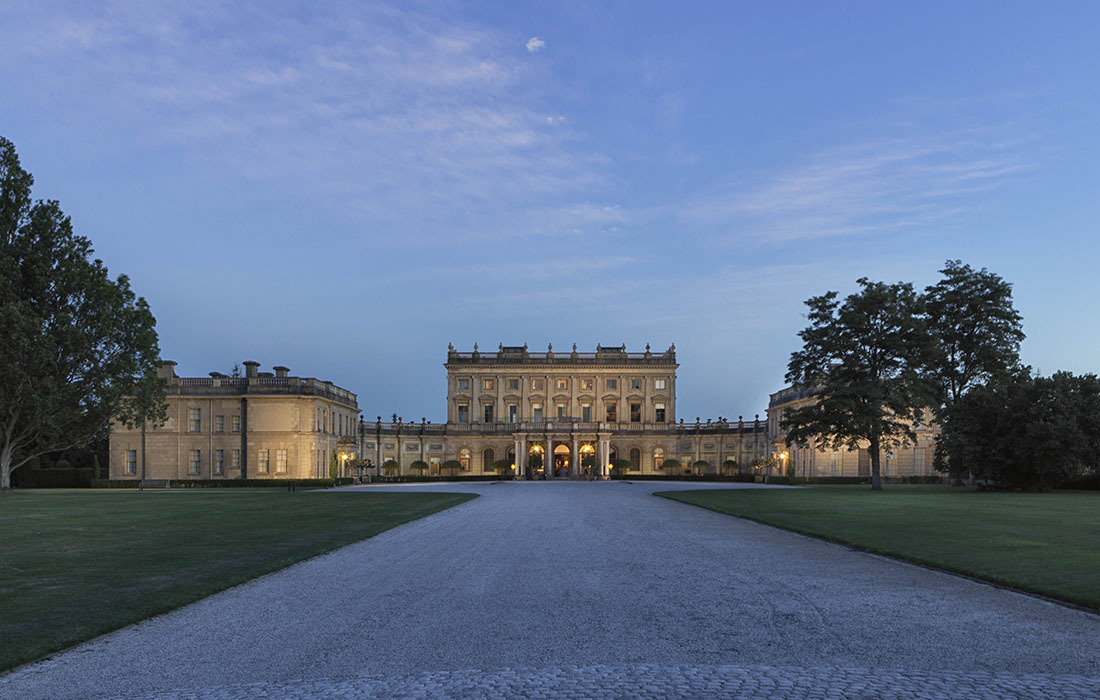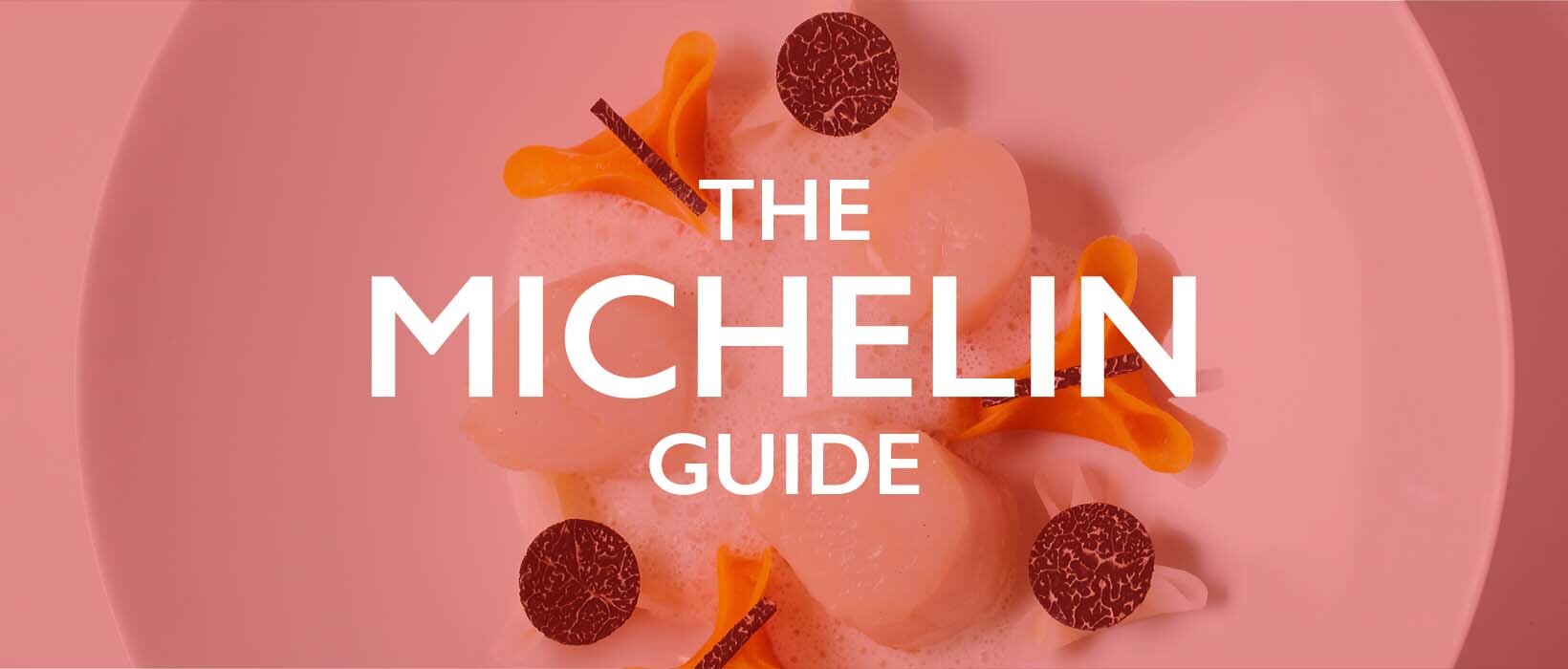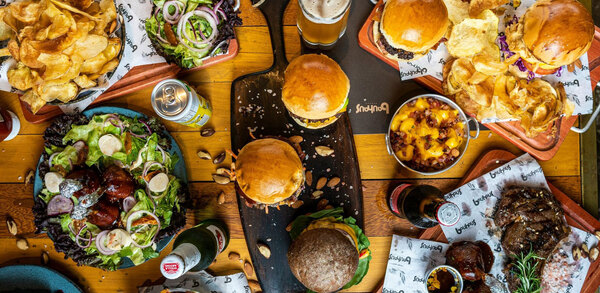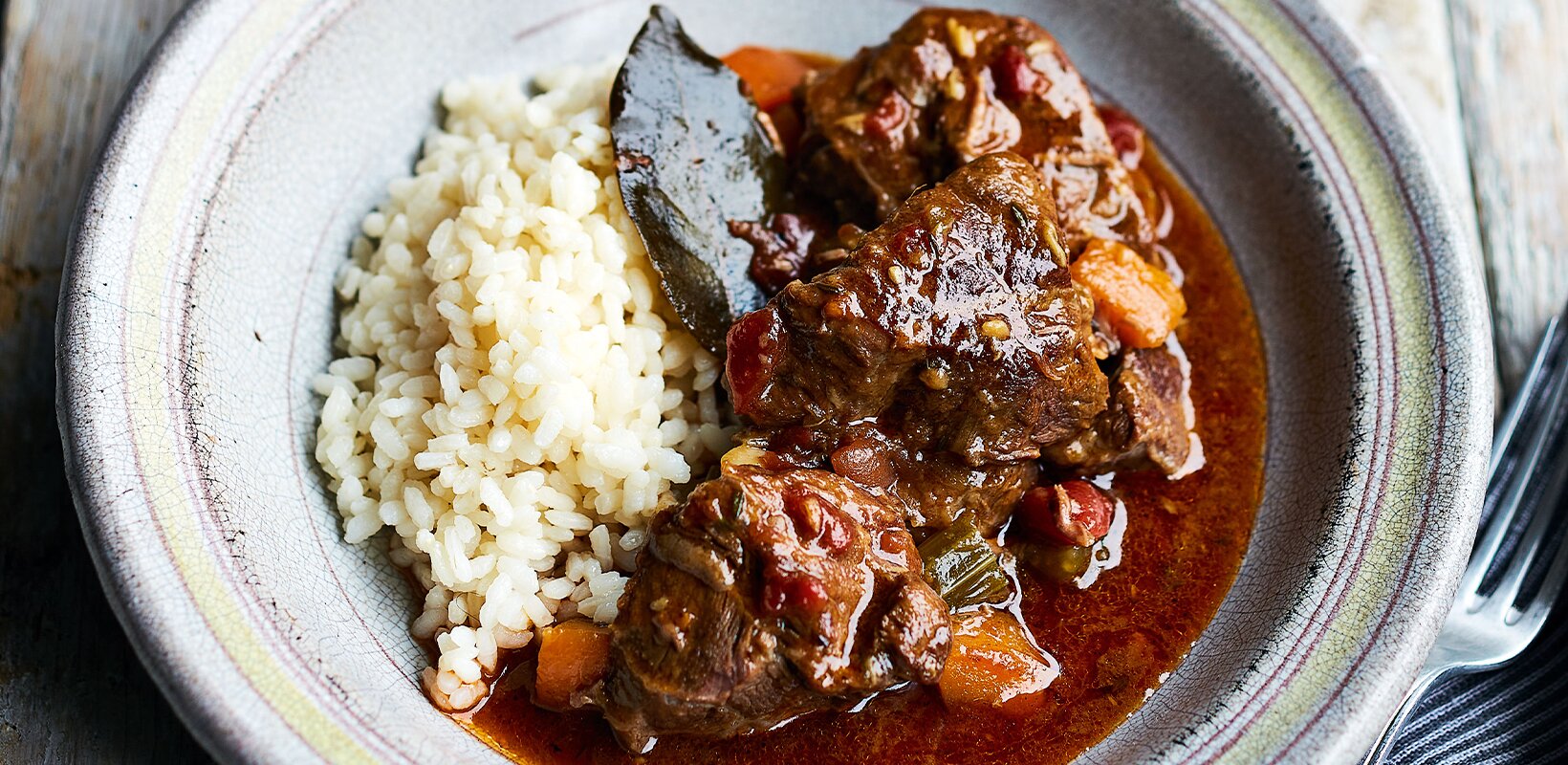Crowd pleaser: Matt Gillan launches Heritage
A five-year-held Michelin star at the Pass at South Lodge and an appearance on BBC’s Great British Menu have made Matt Gillan one to watch. Andy Lynes checks outs his crowdfunded restaurant with rooms, Heritage in Slaugham, West Sussex
To get to Slaugham in West Sussex, you drive along narrow country roads, passing through idyllic woodland and farmland.
When you arrive, you’ll discover that the tiny village consists of just a 13th-century Norman church and Park Road (known locally as the Street), which is lined with well-maintained residences with immaculate English country gardens. It feels remote and secluded and yet is highly accessible, just 12 miles from Gatwick Airport, less than 20 miles from Brighton and moments away from the A23.
In short, it’s the perfect location for a “gastronomic retreat”, which is exactly what chef Matt Gillan has opened, transforming the derelict Chequers village pub into Heritage, a restaurant with rooms that launched in August after a successful crowdfunding campaign.
Gillan reached his target figure of £60,000 in just six days in February and went on to raise a total of £89,000. However, crowdfunding was not his first choice for financing his new business, partly due to a failed £80,000 Kickstarter campaign in 2017 to fund renovations of the gardens behind Red Roaster/Pike and Pine, the day-time café/night-time restaurant concept in Brighton that he opened with entrepreneur Mike Palmer and which closed in December 2018 after two years of trading.
“Over the years you meet people and everyone’s like, ‘Oh, yeah. We should do something. I’ll back you.’ But when it came to crunch time, it’s all, ‘Yeah. Yeah. Okay, we’ll chat,’” he says.
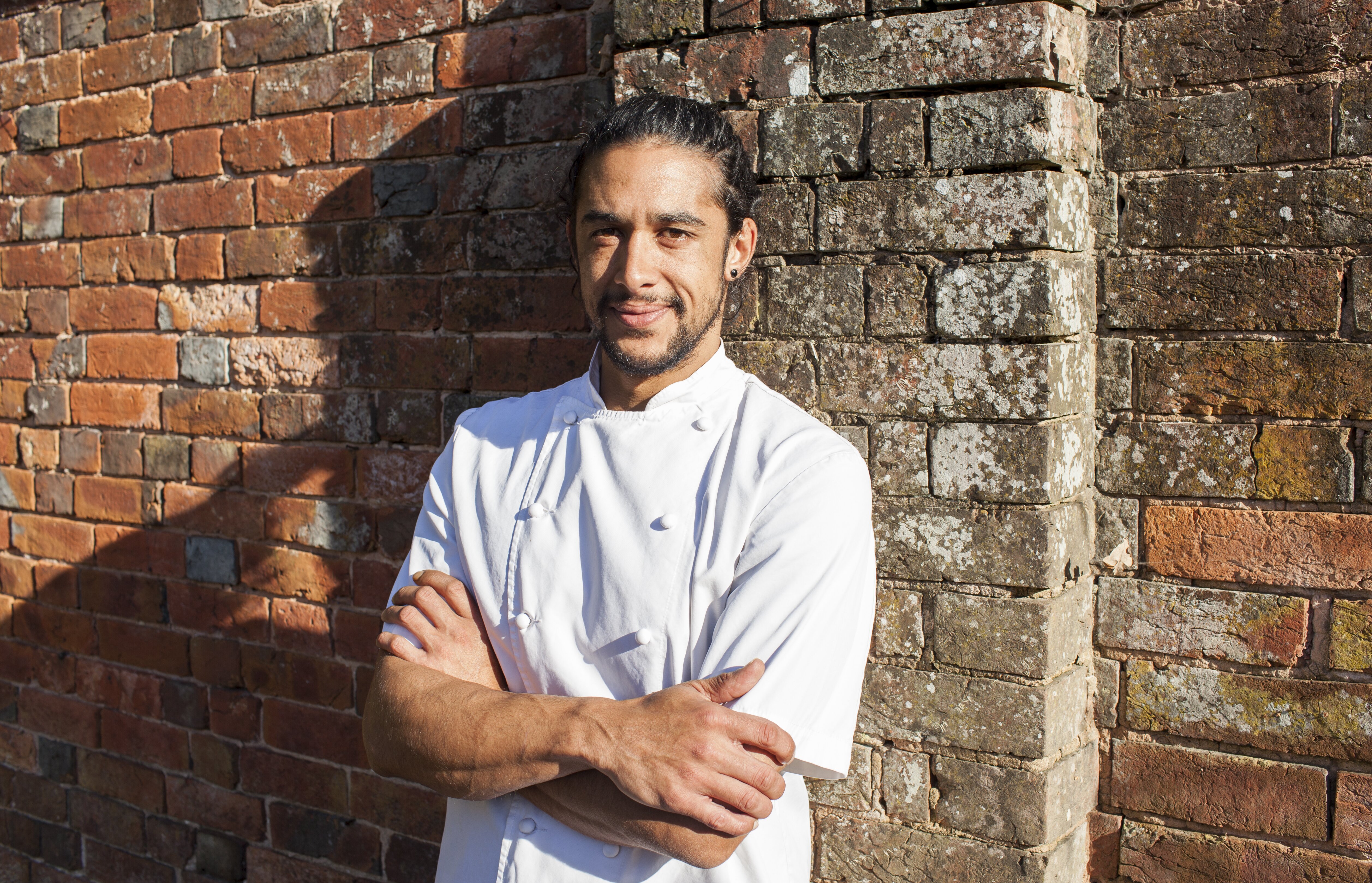
Crowdfunding
“The bank is tricky. It’s a new business in one of the riskiest industries for loans. Crowdfunding wasn’t one of my first thoughts, because I knew just how tough it was. And then I gave it some thought, and I spoke to Gary Usher, and then I just started putting a plan together.
“I had a very clear vision of what I wanted Heritage to be; it’s a very personal thing. There was nothing forced about the Kickstarter video; it’s all very natural and I think you can see the passion and belief that I had in the project, and people buy into that.”
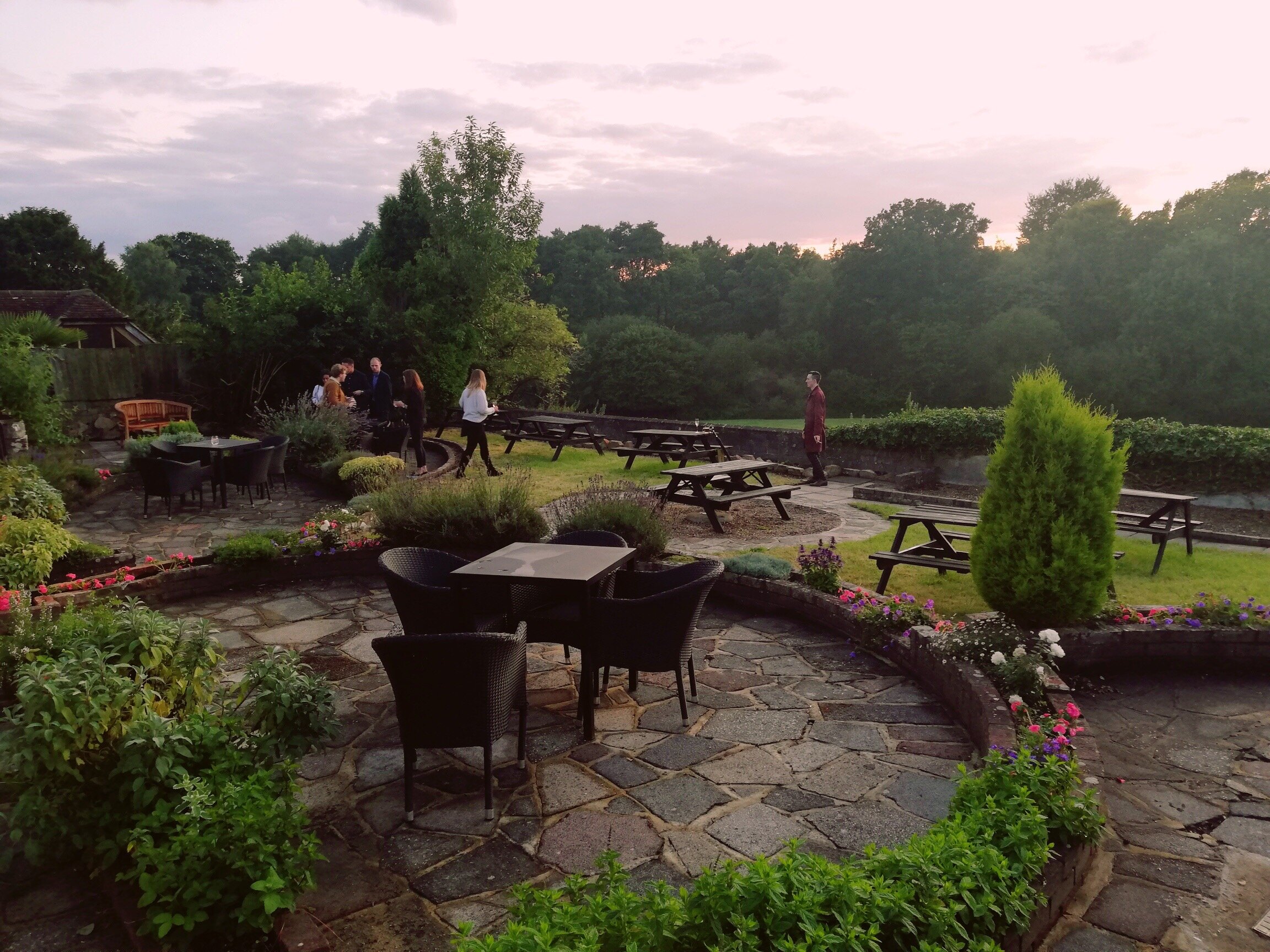
Gillan says the crowdfunded money was quickly swallowed up by things like solicitor’s fees, unexpected electrical works and “general stuff”. With the addition of his own money, Gillan has so far put about £160,000 into the project (excluding legal costs), with the final cost to achieve his vision of “an independent restaurant with rooms, with the amenities of a hotel and the warm greeting of a pub” yet to be determined. However, he believes it will be less than the original estimate of £345,000.
The work will be staged, with the ground-floor bar, ‘steam punk’ lounge, 28-cover dining room, 16- to 20-cover private dining room and terrace ready at the time of the soft launch earlier this month. Work on Heritage’s five bedrooms is planned to be completed by October, with an already finished breakfast area to be put to use once the bedrooms open.
“There’s cash to do the bedrooms. After that, we will have to generate the money to complete everything else,” says Gillan, who, in order to make his available budget go further, made the decision not to employ an interior designer.
Rather than using a uniform scheme throughout, each space within Heritage has its own distinctive character. The bar has a cosy yet chic feel with an exposed-brick open fireplace, dark grey painted wood panelling and a warm, deep red feature wall; the breakfast room is decorated with a wall of monochromatic images of chefs at work in the kitchen; the ‘steam punk’ lounge is furnished with button-back banquets (repurposed from the Chequers bar) that have been cut to size and finished with copper panels; while the dining room and private dining room, which look out over the terrace and to the green fields beyond, both feature wallpaper with a graphical tree branch design.
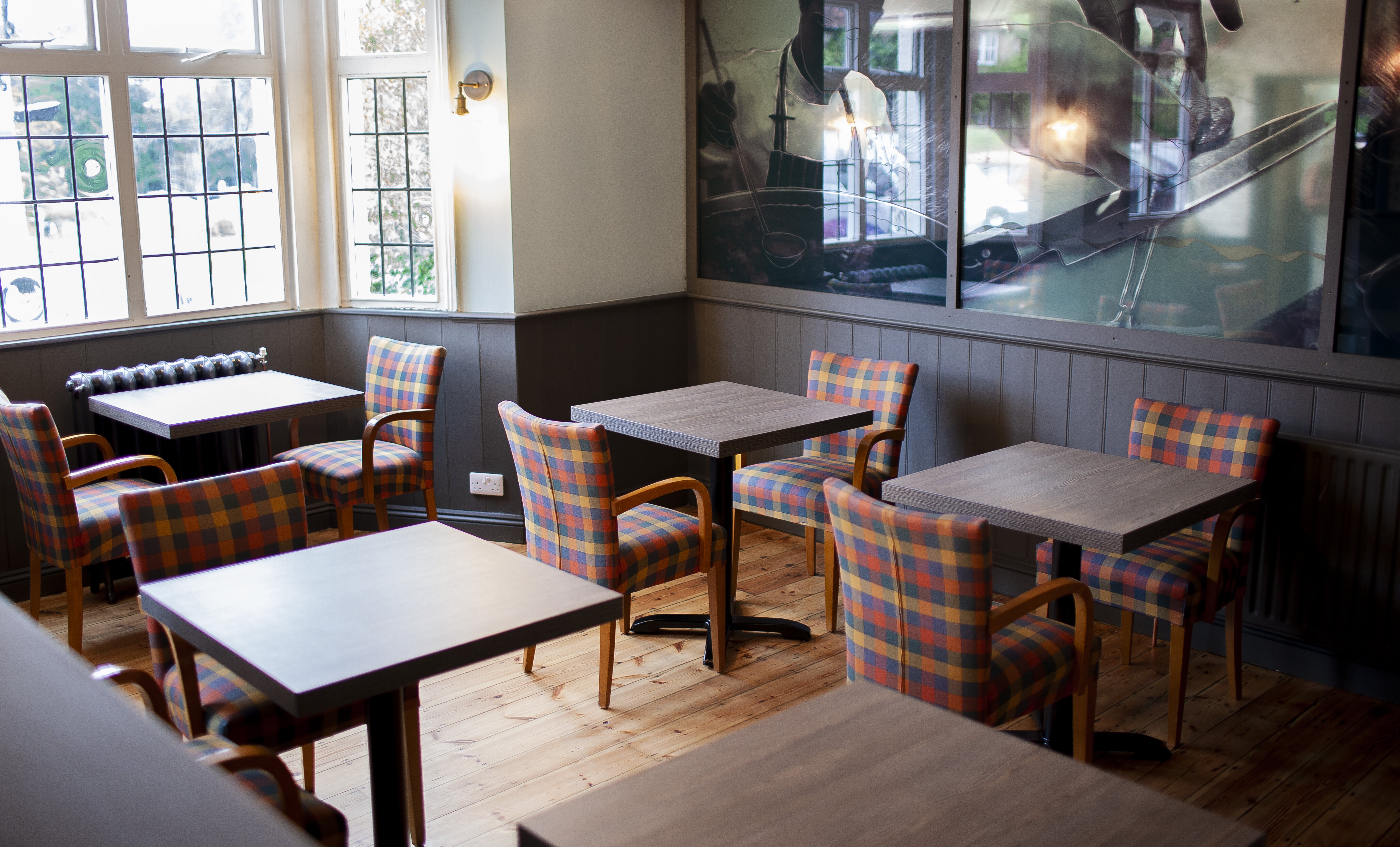
“There were five or six designers that got in touch saying, ‘We can help you.’ They all wanted 10% of my budget. I was like, ‘I don’t have £15,000 for you to tell me what’s already inside my head.’
“I had a very clear idea, but I didn’t really know the finer details until we got in. I think that’s the beauty of not using a designer, of not using an architect: we could change it as we went, so it’s a very fluid refurbishment.
“It’s very much my head in each room. I wanted to create something very different in each room. As you go to the restaurant, you come through the bar, you go through the breakfast room, you go to the lounge, and they’re all very different spaces. It gives people a different reason to be here, or, for whatever the reason it is that you’re here, there’s a room for that.”
When it comes to the bedrooms, Gillan’s focus will initially be on getting the basics right, with the biggest investment going into the beds themselves and “a decent shower”. “I’m not going to faff around too much. I’m not creating different rooms and all that, not just yet. We can come to that, but I just want a comfy space.”
Gillan sees the bedrooms as key to the business, taking pressure off staff and food costs and percentages, allowing him to cap covers per service to a maximum of 50 and thereby not having to compromise on the levels of food and service he wants to achieve.
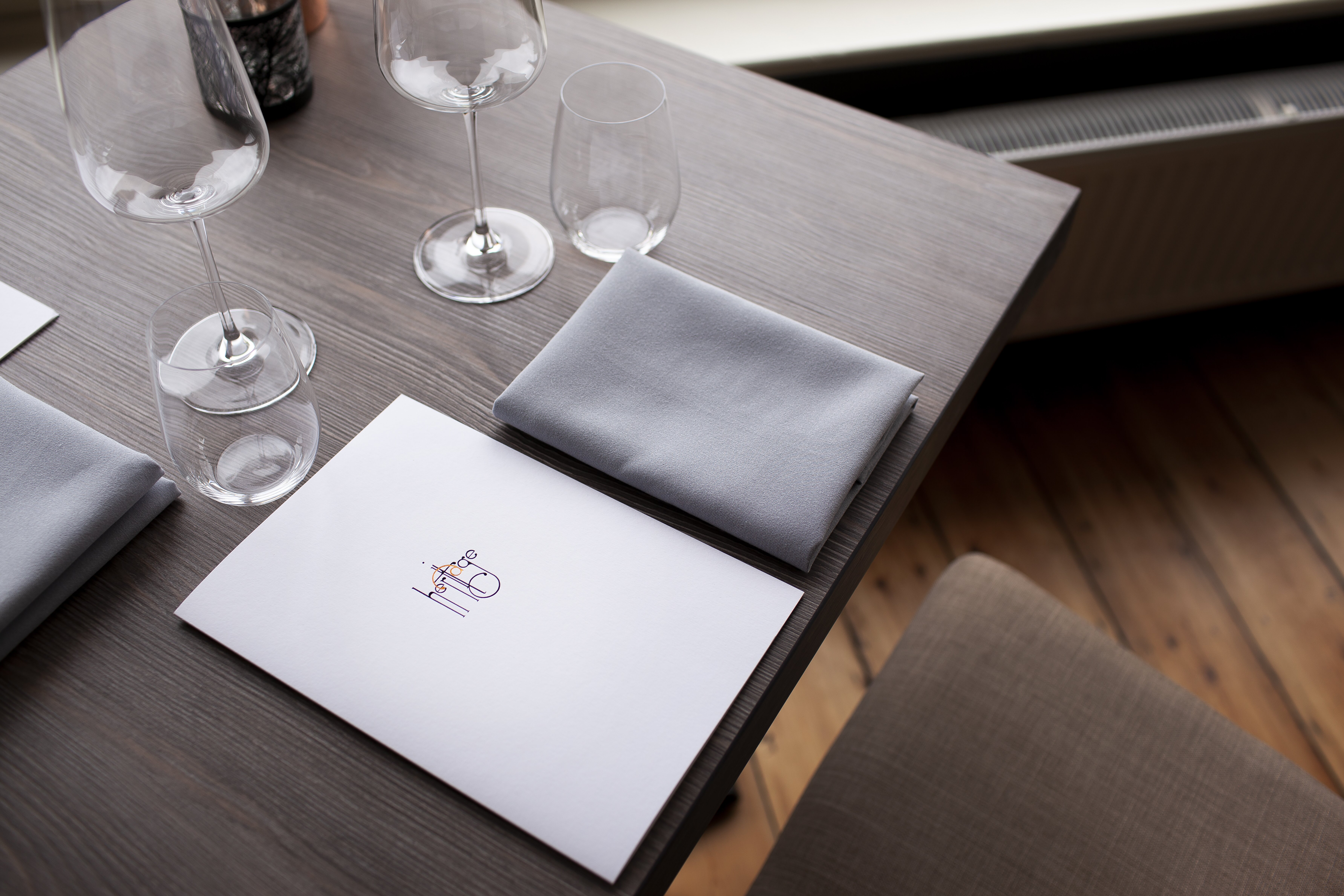
And Gillan is aiming high. He says that his work at the Pass at the South Lodge hotel (just four miles from Slaugham) where he held a Michelin star between 2011 and 2016 will be the “benchmark and foundations” for the new restaurant. He also cites his former boss Daniel Clifford at Midsummer House in Cambridge and Claude Bosi at Bibendum (both two-Michelin-starred restaurants) as inspirations.
“It’s not that I want to be that polished and that kind of classic high-end French style, but certain touches that they do, which we were never able to do at Pike and Pine or the Pass, will sit really nicely here.”
Heritage will offer à la carte, seven-course tasting and vegetarian tasting menus, as well as a set lunch (£22 for two courses, £27 for three courses). Reading through the dishes, The Good Food Guide’s description of Gillan’s cooking as “phenomenally dynamic… inventive, clever and full of flavour” springs to mind. Creations such as roasted scallop, glazed chicken wing, black sesame, smoked sweetcorn and cocoa nib (£18), or a main course of roasted halibut, cauliflower cheese purée, clam chowder and kiwi fruit (£26), have a strong and distinctive authorial stamp on them, often incorporating surprising combinations.
“I love it when you go to places, you’re mixed up in conversation, and then your conversation stops – not because you’ve been interrupted, but because you’ve got something there and you’re like, ‘That’s amazing.’ I think it’s just adding interest and education. I like people to engage with the food and engage with the servers, if they want to. If not, then we’ll leave them to it.”
Gillan has revived “the Herder”, his winning goat dish from BBC Two’s Great British Menu, inspired by his mother who hails from St Helena and often cooks goat at home, which he served at the Pass but hasn’t cooked for two years. The dish is available as an à la carte main course (£32), supplementary course to the tasting menu (£22), or as a substitute main course on the tasting menu – Gillan is giving his customers every opportunity to try it. Served in specially manufactured boxes, it comes complete with an illustrated story book written by Gillan. Comprising stuffed loin of goat, salt-baked leg, barbecued shoulder, “herder pie” (a version of shepherd’s pie made with goat meat), jelly, goat fat dumpling and roasted pineapple, it’s a complex and ambitious piece of cooking that provides a focal point for the menu and will no doubt attract customers to the restaurant.
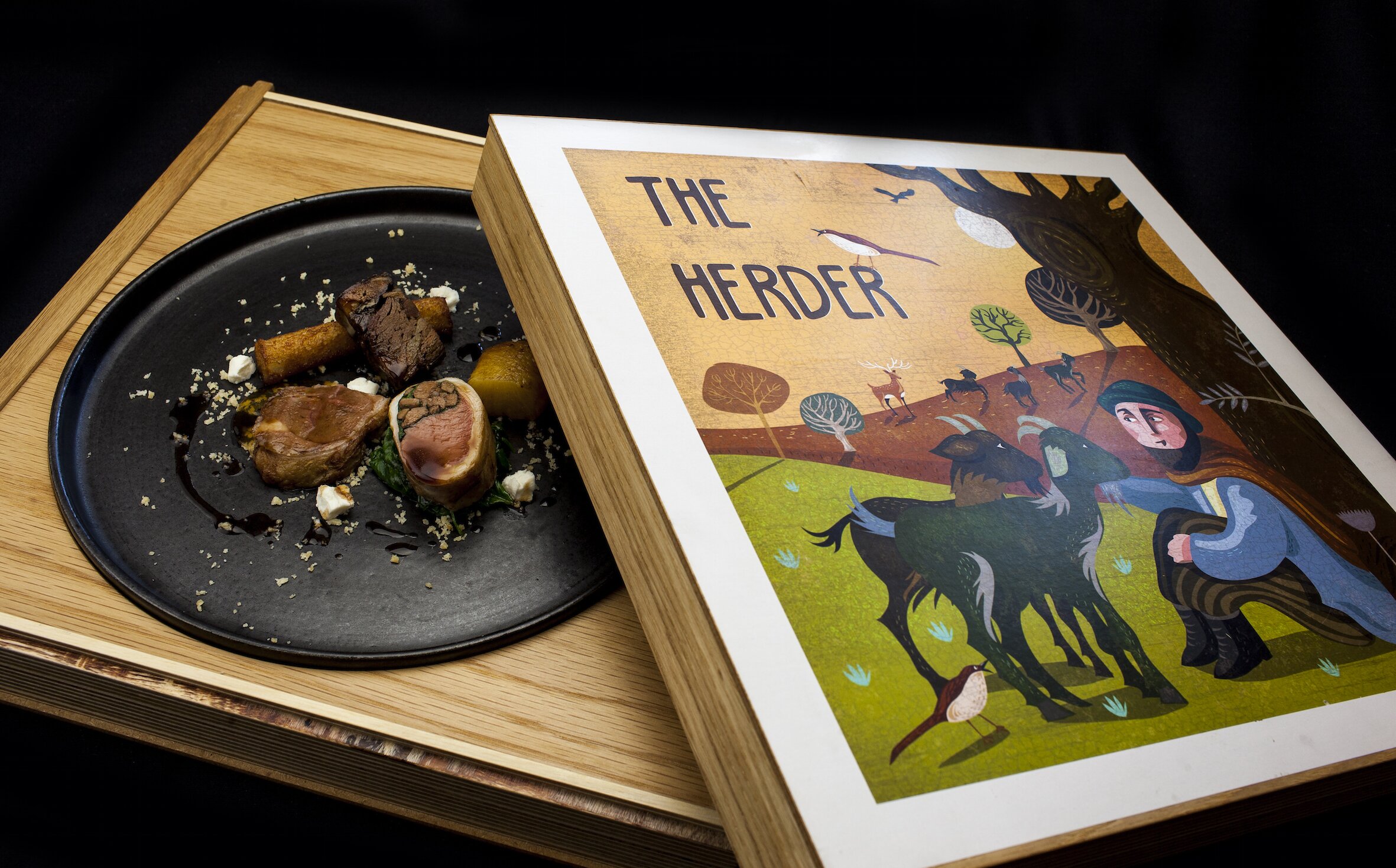
“There are still people that want it and haven’t tried it, which is great. It’s amazing that people are still interested in it, to be honest. It was a good three years ago that it was on TV. But I love that dish. It’s hard work to prep, but it’s a fun one to prep too. It’s interesting,” says Gillan, who is sourcing the goats from James Whetlor at Cabrito and is also looking at a potential local supplier in nearby Lewes.
There’s no lack of kitchen space at Heritage (and there is still room to expand, with the potential conversion of what is currently a store room, which could also accommodate a sixth bedroom above it with the addition of dormer windows), but Gillan says that it’s been “cobbled together” with minimal outlay.
However, he will be employing a variety of cooking techniques, including sous vide, and there is a Konro traditional Japanese-style charcoal grill, also favoured by Sat Bains, Paul Ainsworth and Heston Blumenthal. “They’re very much taking over most kitchens at the moment, I think because they’re more practical than a Green Egg. They’re quicker and just much easier to set up in the kitchen.”
For the locals
Heritage is a first and foremost a fine dining destination, but that doesn’t mean Gillan has forgotten that the Edwardian building used to be the village pub and will be welcoming drinkers to the bar. With ownership of the lease, he isn’t tied to a brewery and will offer a rotating selection of guest cask ales alongside Stiegl lager, and ciders made by his friend Tom Stevens at Wobblegate in nearby Bolney.
“The pub/bar side of it is a very new thing, so I’m learning all the time. It just can’t be a pub any more, but I also couldn’t not think about the locals and think about this building as part of the community. I didn’t realise how many walkers come across this lane, so they drop in and grab a drink on their way through. But food-wise, I’m not billing it as a pub at all. It’s much more of tapas-y, snack-type thing, so it’s more geared toward drinkers who just want a bite to eat. We’ll do braised beef shin baos – something a bit cool.”
Gillan does have some experience with pubs, however, having trialled his casual dining brand Electro Pirate as an extended pop-up at the Foresters Arms in Horsham between May 2018 and March 2019. Plans for finding the concept a permanent home are currently on the back burner.
“It’s another seed that’s developing. It’s still there and one day I hope to bring it to fruition. The Foresters Arms was very much a locals’ pub, and there were certain things that worked there and a lot of things that didn’t. Summer was amazing for us, but once Heritage started happening, I just had to pull out.”
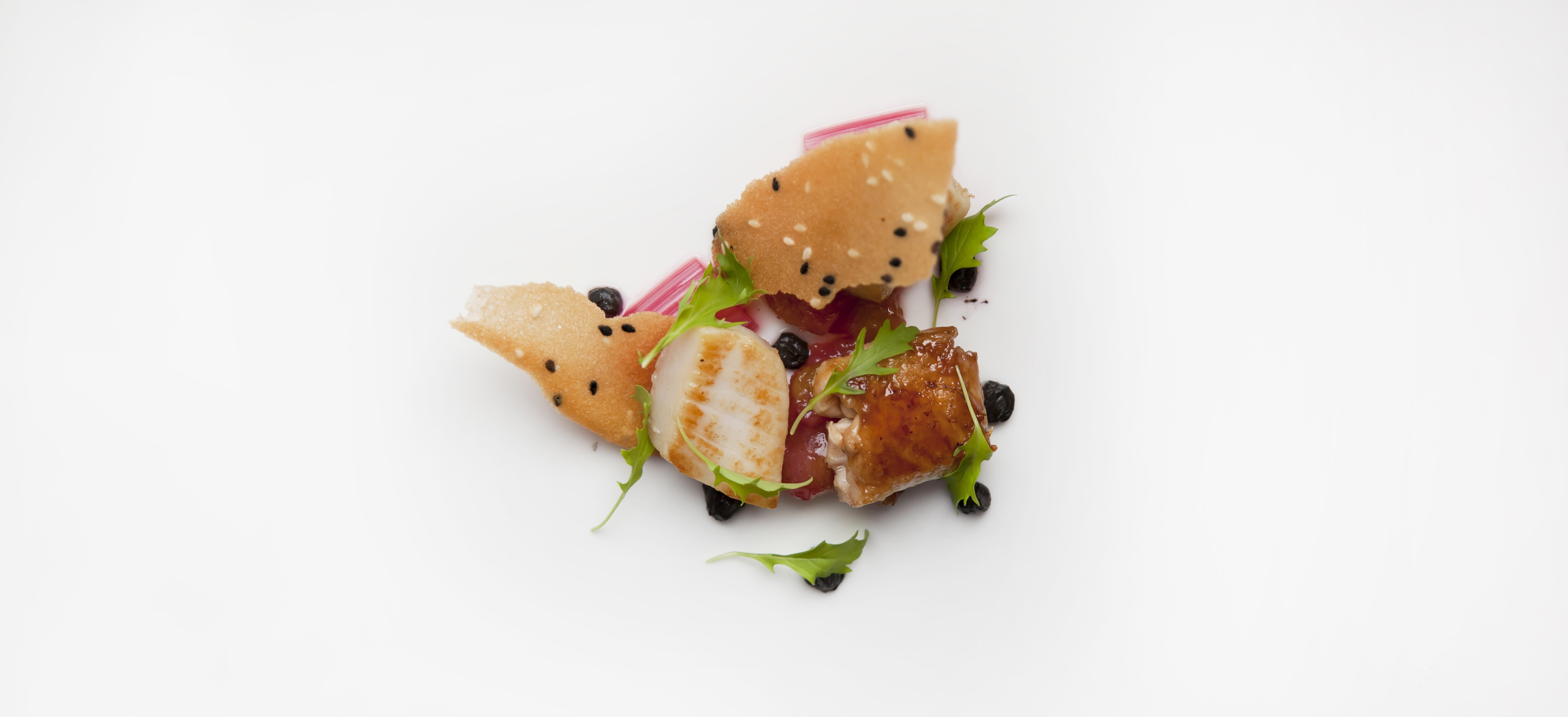
For Gillan, Heritage is the realisation of a long-held dream. “I’ve always wanted my own place, for sure, and it was always going to be called Heritage,” he says, although he refused to explain the reason for the name, which he says “will come out later”.
He looks on his time at Red Roaster/Pike and Pine as an enjoyable and educational experience where he learned about the business side of the industry, but felt there was something lacking. “That higher-end, messing around with techniques, playing around with food and just being able to teach the guys, I missed all that. So that’s where I said, ‘Okay. How do I come back to that?’”
The Caterer visited Heritage a few days before the soft launch, builders still hard at work, last-minute deliveries of materials or ingredients arriving at regular intervals and the chef’s phone almost permanently lit up with messages and missed calls.
When asked if he would recommend the experience of opening a restaurant with rooms to other chefs, Gillan admits: “It depends on your pain threshold, really, and your stress-level tolerance. It’s not been an easy ride, but it’s been enjoyable. Even the shit days have been quite fun. I’m looking forward to opening the doors and to start building the rest of the vision and what I want to achieve with this. Hopefully, it will all go the right way.”
###From the à la carte
- Salmon carpaccio, crab cannelloni, yellow pepper, iced coriander £14
- ?Braised pork, prune purée, pickled apple, lardo, pumpkin seeds £12.50
- ?Beetroot tartare, horseradish ice-cream, watercress purée, crispy capers, orange £10.50
- ?Saddle and belly of lamb, artichoke purée, roasted artichoke, pressed pepper, truffle peas, tomato and basil sauce £26
- ?Fjord trout, lettuce cream, roasted baby gem, braised ox tongue, tomato jam £22
- ?Salt-baked celeriac, barbecue aubergine, lime pickle, truffle emulsion, shiso leaves, spiced puff pastry £21.50
- ?Chocolate crémeux, peanut ice-cream, coffee syrup, chocolate tuille £12.50
- ?Raspberry tart, pickled raspberry, nougatine, lemon curd £11
- ?Vanilla panna cotta, popcorn coulis, soy sauce, orange £10


